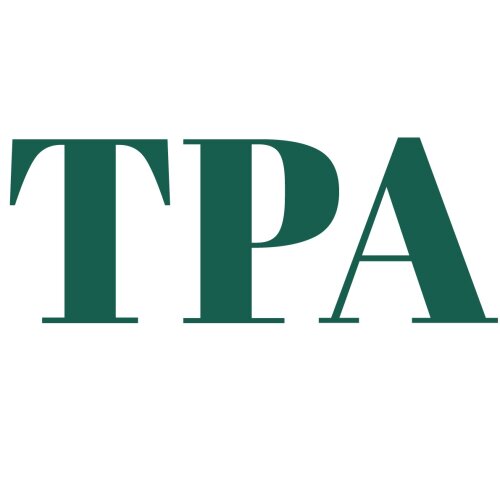Best Financial Services Regulation Lawyers in London
Share your needs with us, get contacted by law firms.
Free. Takes 2 min.
List of the best lawyers in London, United Kingdom
Legal guides written by Crypto Legal:
- The Evolution of Crypto Fraud in 2025: Forensic and Legal Strategies for Prevention and Recovery
About Financial Services Regulation Law in London, United Kingdom
Financial Services Regulation in London, United Kingdom, is a critical component of the broader regulatory framework that ensures the stability, integrity, and transparency of the financial markets. The UK has a robust regulatory environment, primarily governed by the Financial Conduct Authority (FCA) and the Prudential Regulation Authority (PRA). The regulations aim to protect consumers, maintain market confidence, and promote healthy competition in the financial services sector. London, as a global financial hub, attracts a vast array of financial services businesses, making it essential to have a strict regulatory regime in place.
Why You May Need a Lawyer
There are numerous situations where individuals and businesses may require legal assistance in the realm of Financial Services Regulation. Common scenarios include:
- Ensuring compliance with FCA and PRA regulations to avoid penalties and legal issues.
- Handling licensing and authorization requests for new financial services products or firms.
- Navigating complex regulatory changes, such as post-Brexit adjustments.
- Addressing financial misconduct allegations or litigation against financial institutions.
- Managing disputes related to financial products and services offered to consumers or businesses.
Local Laws Overview
Key aspects of local laws relevant to Financial Services Regulation in London include:
- The Financial Services and Markets Act 2000 (FSMA): A cornerstone legislation that outlines the framework for the regulation of financial services and markets in the UK.
- The FCA Handbook: A comprehensive set of guidelines and rules established by the FCA that financial firms must follow.
- The PRA Rulebook: Includes directives specific to ensuring the safety and soundness of firms, particularly those that may impact the wider economy.
- Data Protection Laws: Includes specific regulations around the handling of customer data within financial services, particularly post-GDPR.
- Anti-Money Laundering (AML) Regulations: Strict measures that require due diligence in preventing financial crime.
Frequently Asked Questions
What is the role of the Financial Conduct Authority (FCA)?
The FCA is responsible for regulating the conduct of thousands of financial firms and ensuring that markets work well for individuals, businesses, and the economy. Their role includes ensuring firms are fair, transparent, and offer products that meet consumer needs.
Who needs to be authorized by the FCA?
Any firm carrying out regulated financial services activities in the UK needs to be authorized by the FCA unless an exemption applies. This includes banks, insurers, financial advisers, and many more.
What happens if a firm breaches FCA regulations?
If a firm breaches FCA regulations, it can face significant penalties, including fines, restrictions on its operations, or suspension of licenses. In severe cases, individuals within the firm may face legal action.
How can Brexit affect financial services regulation?
Brexit has led to changes in the regulatory landscape, as the UK is no longer subject to EU regulations. Firms need to stay informed about evolving requirements to remain compliant with UK-specific rules.
What is the Senior Managers and Certification Regime (SMCR)?
The SMCR aims to enhance individual accountability within financial firms, ensuring that senior managers take personal responsibility for their actions and the conduct of their business areas.
Do all financial products need FCA approval?
Not all products require FCA approval. However, they must be compliant with regulatory requirements. High-risk products or new-to-market innovations may require closer scrutiny.
How can I report misconduct in a financial institution?
Misconduct can be reported directly to the FCA through their whistleblowing service. Confidentiality is ensured, and measures are taken to protect the whistleblower from repercussions.
What are the primary objectives of the Prudential Regulation Authority (PRA)?
The PRA is focused on promoting the safety and soundness of systemically important financial firms and ensuring appropriate rules are enforced to mitigate macroeconomic risks.
How does the UK approach financial crime prevention?
The UK adopts a stringent approach to prevent financial crime, implementing thorough Anti-Money Laundering (AML) and Combating the Financing of Terrorism (CFT) frameworks.
Where can I find regulatory updates and guidance?
The FCA and PRA websites are definitive resources for regulatory updates. Additionally, firms often subscribe to industry updates from legal publications and consultancy firms.
Additional Resources
Here are some helpful resources and organizations related to Financial Services Regulation:
- Financial Conduct Authority (FCA): Detailed guidelines, updates, and regulatory framework information.
- Prudential Regulation Authority (PRA): Insights on risk management and system safety regulations.
- HM Treasury: Responsible for financial legislation and regulations in the UK.
- Law Society of England and Wales: Provides resources and guidance for finding qualified legal support.
- Financial Ombudsman Service: Offers dispute resolution between consumers and financial services firms.
Next Steps
If you believe you need legal assistance in Financial Services Regulation, consider the following steps:
- Conduct preliminary research about your specific legal need to better understand the core issues.
- Contact a solicitor or law firm with expertise in financial regulation. The Law Society can be a helpful resource for finding qualified professionals.
- Prepare all relevant documentation and evidence that you may need to discuss with your lawyer.
- Consult with multiple legal professionals if needed to get varied perspectives on your matter.
- Stay informed about updates and articles on financial services legislation to be better prepared for regulatory shifts.
Lawzana helps you find the best lawyers and law firms in London through a curated and pre-screened list of qualified legal professionals. Our platform offers rankings and detailed profiles of attorneys and law firms, allowing you to compare based on practice areas, including Financial Services Regulation, experience, and client feedback.
Each profile includes a description of the firm's areas of practice, client reviews, team members and partners, year of establishment, spoken languages, office locations, contact information, social media presence, and any published articles or resources. Most firms on our platform speak English and are experienced in both local and international legal matters.
Get a quote from top-rated law firms in London, United Kingdom — quickly, securely, and without unnecessary hassle.
Disclaimer:
The information provided on this page is for general informational purposes only and does not constitute legal advice. While we strive to ensure the accuracy and relevance of the content, legal information may change over time, and interpretations of the law can vary. You should always consult with a qualified legal professional for advice specific to your situation.
We disclaim all liability for actions taken or not taken based on the content of this page. If you believe any information is incorrect or outdated, please contact us, and we will review and update it where appropriate.

















